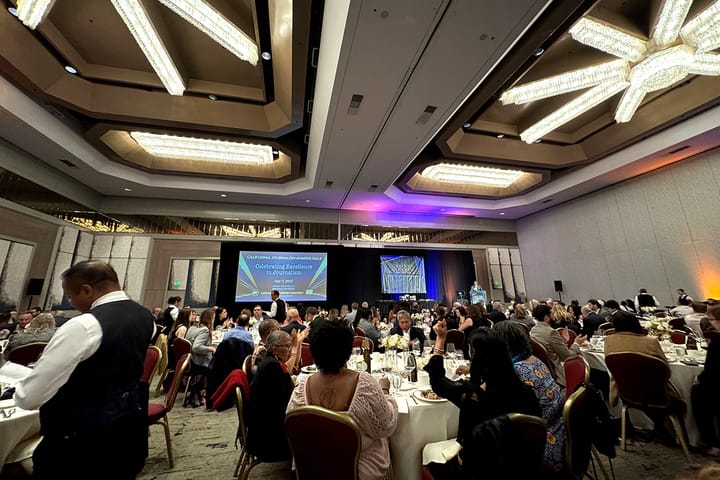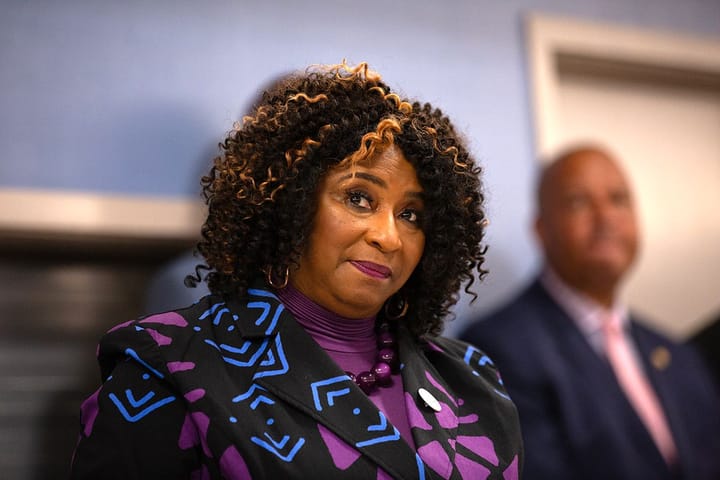Berkeley High refused to let a reporter on campus. That may violate state law, experts say
BUSD's media access policy appears to run "counter to what the law says," said David Snyder, executive director of the First Amendment Coalition.
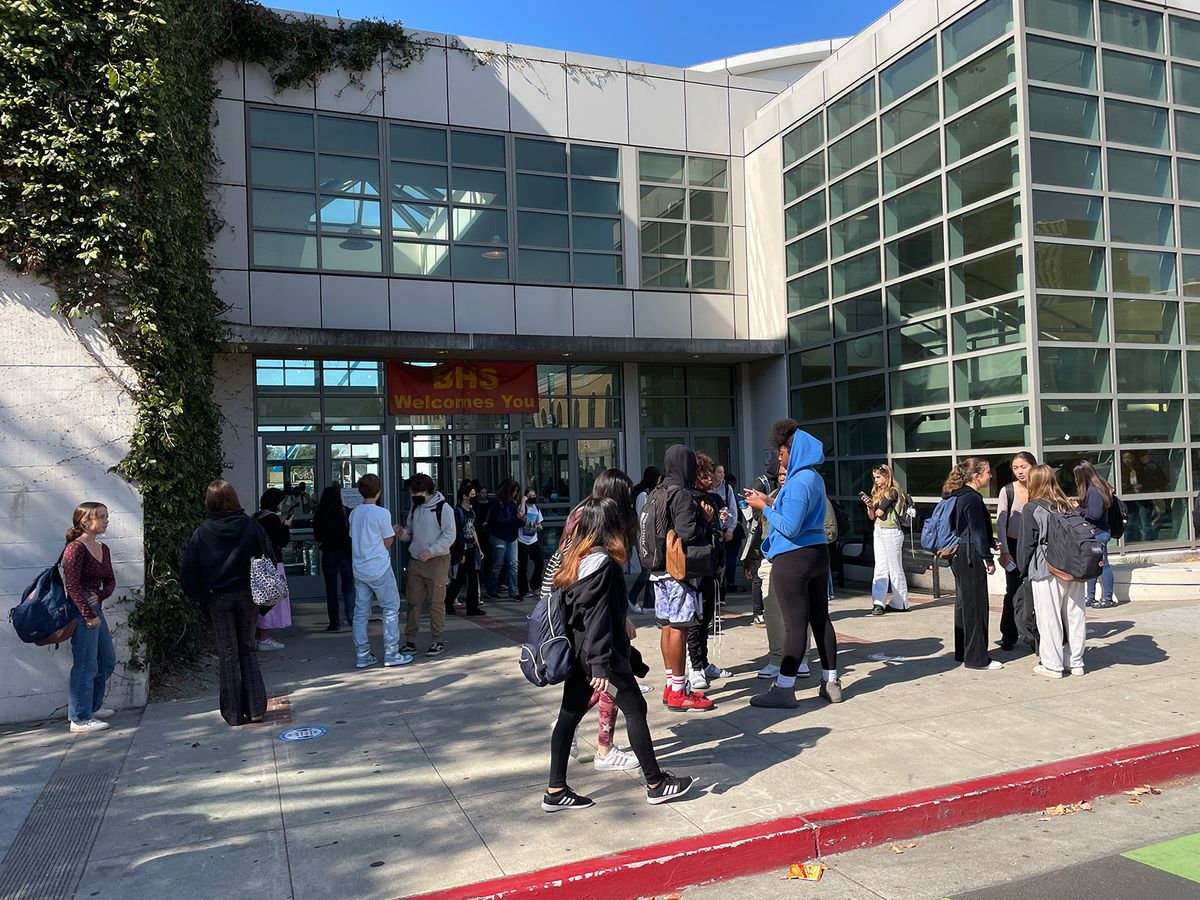
Berkeley High staff turned away a reporter who tried to visit campus Thursday — saying district policy requires media to secure advance permission from an off-site district employee before coming onto the property.
The Berkeley Unified School District policy as described by staff appears to run "counter to what the law says," David Snyder, executive director of the First Amendment Coalition in San Rafael, told The Berkeley Scanner after the denial. Snyder, a lawyer and former journalist, is a longtime expert on media access and open government laws.
State law requires any "outsider" to check in with school staff before entering a public school campus. But it specifically exempts journalists — along with students, parents and elected officials, among others — from the check-in requirement.
A school principal (or their designee) also has the right to ask reporters to leave, but only on the grounds that their presence "would be disruptive of, or would interfere with, classes or other activities of the public school program," according to the state Education Code.
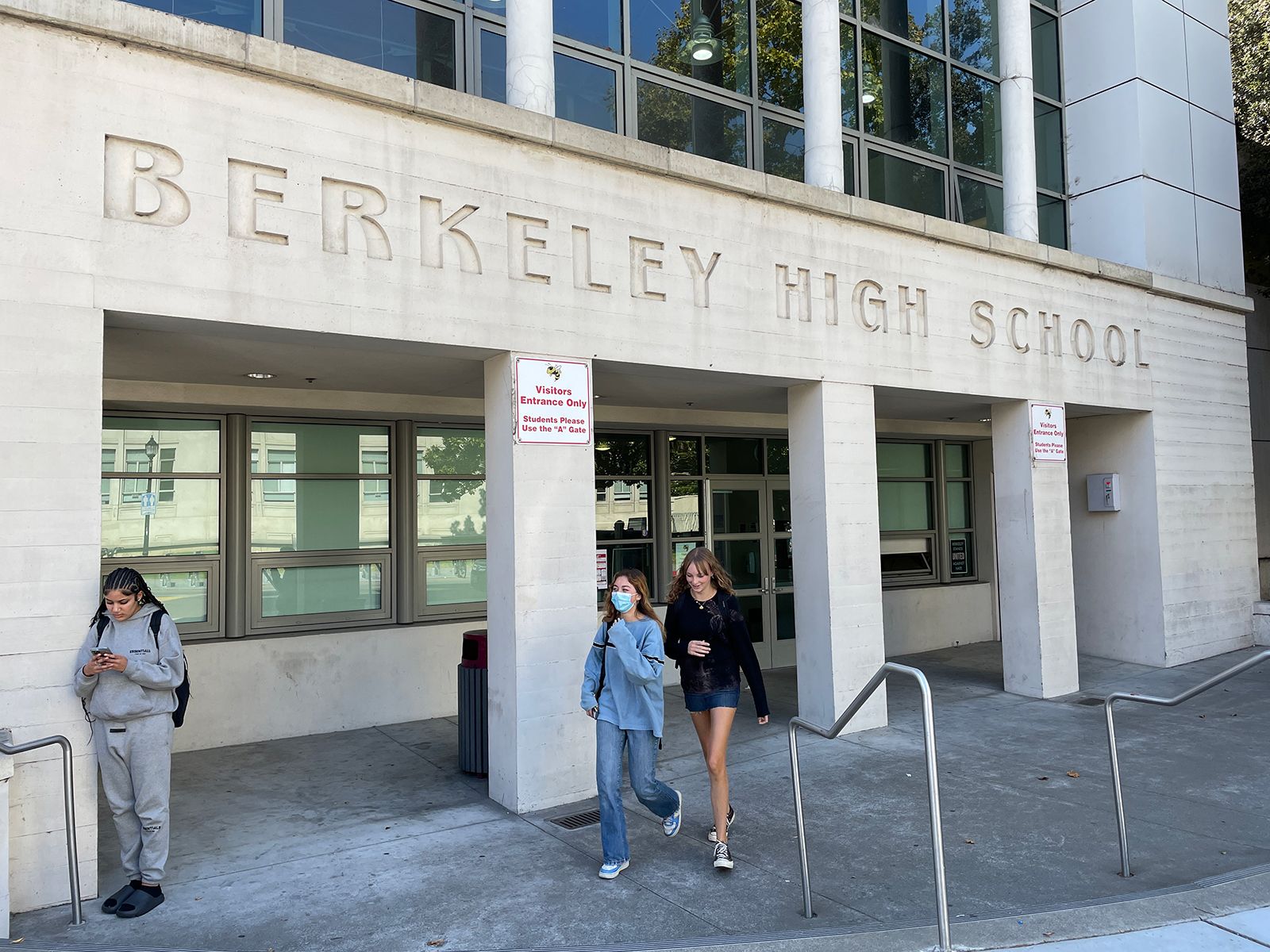
On Thursday morning, this reporter stopped by the Berkeley High School campus at 1980 Allston Way hoping to view a memorial that had been created last week to honor two teenage brothers, Jazy and Angel Sotelo Garcia, who were killed at a friend's birthday party in Oakland earlier this month.
The boys attended Berkeley High School, where fellow students have since established a scholarship to keep their name alive.
Community members had described the campus memorial during a vigil for Jazy and Angel last week, prompting The Berkeley Scanner's interest in viewing it.
On Thursday, school staff at the visitor's entrance, including a Berkeley High vice principal, denied access to campus and directed this reporter to the district employee who handles BUSD media inquiries.
Staff said that employee, Trish McDermott, was the only person who could grant permission to enter school grounds. McDermott could not be reached by phone or text during the impromptu visit.
Staff maintained its position after being informed that state law allows members of the media to be present on school grounds as long as they do not interfere with school operations.
Staff then confirmed with Berkeley High's principal, Juan Raygoza, that the district's policy required advance permission from McDermott.
The Berkeley Scanner requested permission to be escorted to the memorial to take a photograph of it and said no students would be contacted. This request too was denied.
After being turned away, this reporter contacted several open government experts to seek their take on BUSD's position.
"Access to all public places, including public schools, by the media is important to understand what’s being done with taxpayer dollars with our children in our name," said James Wheaton, of counsel to the First Amendment Project, a nonprofit public interest law firm based in Oakland.
The First Amendment Coalition's David Snyder concurred.
"The policy requiring advance registration is directly contrary to California law — which makes clear that journalists are not required to register or check in with the school before entering school grounds," he said. "Reporters are not considered outsiders."
Snyder cautioned that schools do have discretion regarding when they can ask a journalist to leave.
It can only be done, however, "if the journalist is being disruptive in some way," Snyder said. "They have pretty broad grounds. But that doesn’t mean that it’s limitless. Disruptive still means disruptive."
The issue of media access on campus was rendered somewhat more complex after a California Attorney General's opinion from 1996 that found that "school officials may deny access to members of the news media, as they may deny access to anyone, if their presence would interfere with the peaceful conduct of the activities of the school," according to a First Amendment Coalition summary of the report.
That opinion — which does not carry the same weight as law — has given districts some amount of cover when they seek to deny public access.
"Attorney General decisions are not binding law, and the correctness of this one is open to debate," Snyder said, "but school districts have been known to attempt to rely on this decision to control media access to schools."
"I think it’s clear that the law just doesn't say that," Snyder added. "It says the opposite in fact."
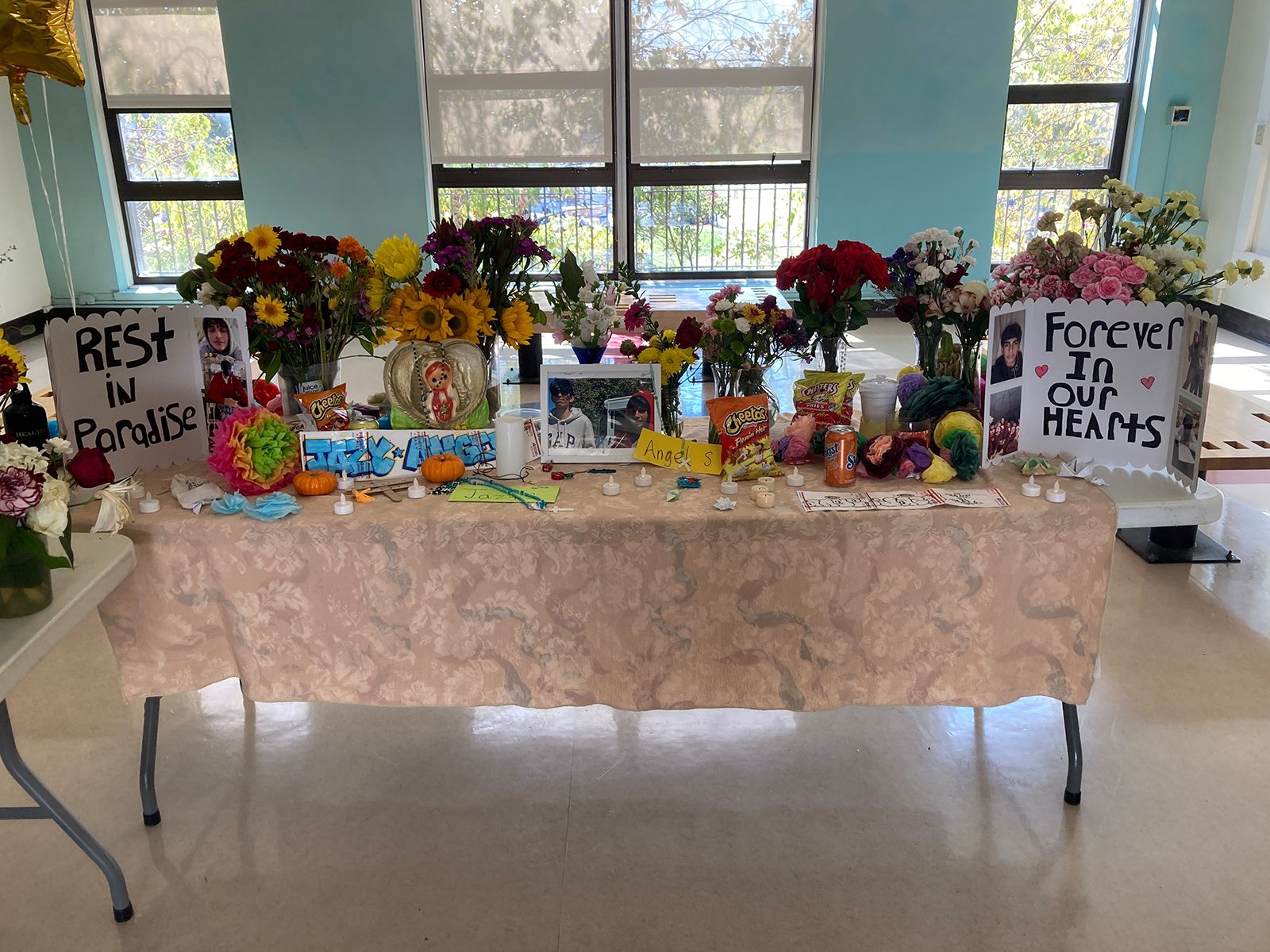
After being refused entry to Berkeley High School, The Berkeley Scanner requested clarification from BUSD about its media access policy as well as regarding the specific grounds for refusal Thursday.
McDermott, school district spokeswoman, said BUSD had decided to restrict access to the memorial space out of consideration for students.
"We feel strongly that having press at the memorial at this time creates an unsafe emotional environment for our students who continue to gather there throughout the day to express grief and seek solace after this tragedy," she wrote.
The Berkeley Scanner noted that our visit was during a class period, which would have reduced the chance of disturbing students.
Several photographs of the memorial obtained by The Scanner from a community member Thursday showed no students in the area.
And The Scanner would have been respectful of student sentiment and proximity had access to the space been granted.
BUSD verbal and written policies seem to conflict
Early Thursday evening, McDermott was able to provide BUSD's media access policy to The Berkeley Scanner by request.
The policy requires all media — and all visitors — to "register immediately" when entering campus while school is in session.
It also states that "media representatives who wish to interview students at school are strongly encouraged to make prior arrangements with the public information office and the principal."
It further states that "a media representative who wishes to photograph students on school grounds should first make arrangements with the principal or designee."
The policy does not seem to state that solely entering campus requires advance permission.
The Berkeley Scanner will continue to discuss this matter with the district and also to advocate for appropriate media access to campus as allowed by state law.


